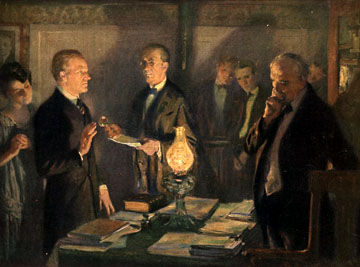A great deal of this parsha is about sworn oaths: who may take them and whether the one who takes them needs to carry them out.
There’s a double standard here. If a man swears an oath, he binds himself to it and must do what he swore to do. If a woman swears an oath, her father or husband can stop her, so that she’s not bound by her oath. Now if her husband or father doesn’t speak up at the time she makes the oath, then she is bound by it. Widows and divorcees, not having a man to stop them, are bound by the oaths they take.
Now we switch topics: from oaths to war.
Moses tells the Israelites to go out and attack Midyan “a thousand Israelites per tribe.” The Israelites win the battle and get a lot of plunder: gold and cattle and donkeys and sheep – and young women. Of the animals and gold Moshe takes a portion and gives it to the Levites (who did not go out to battle, but who keep the Ohel Moed.) The gold goes to the Ohel Moed.
Food for Thought
How does the part about war have relevance today?

